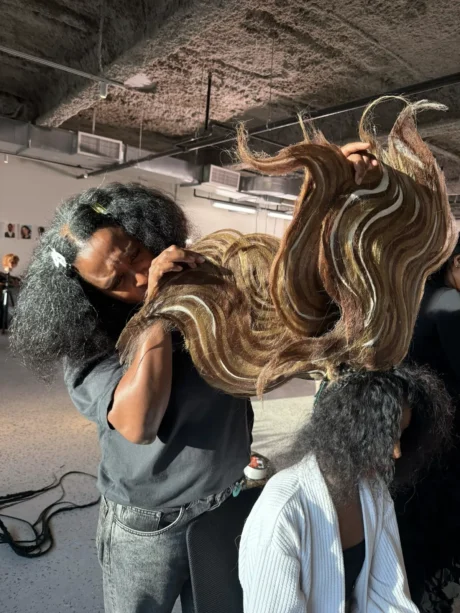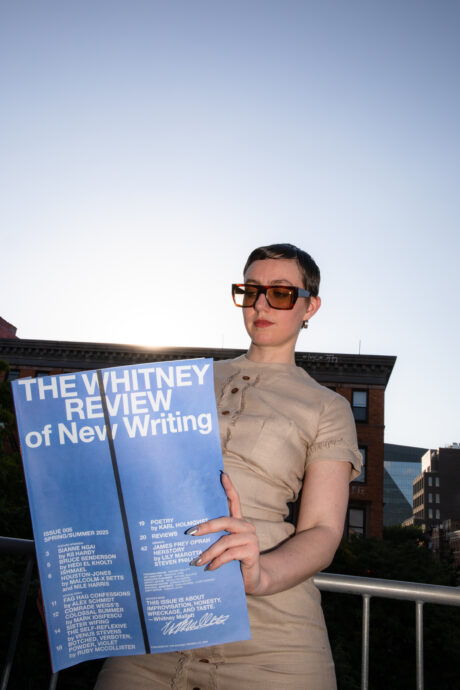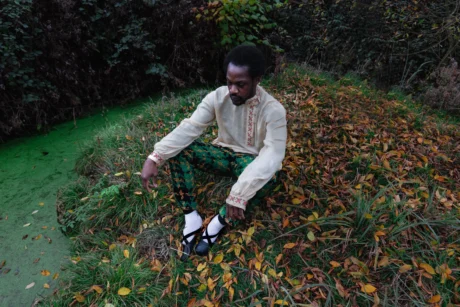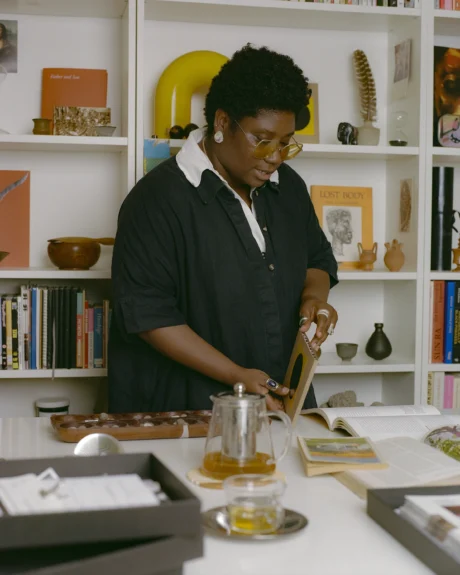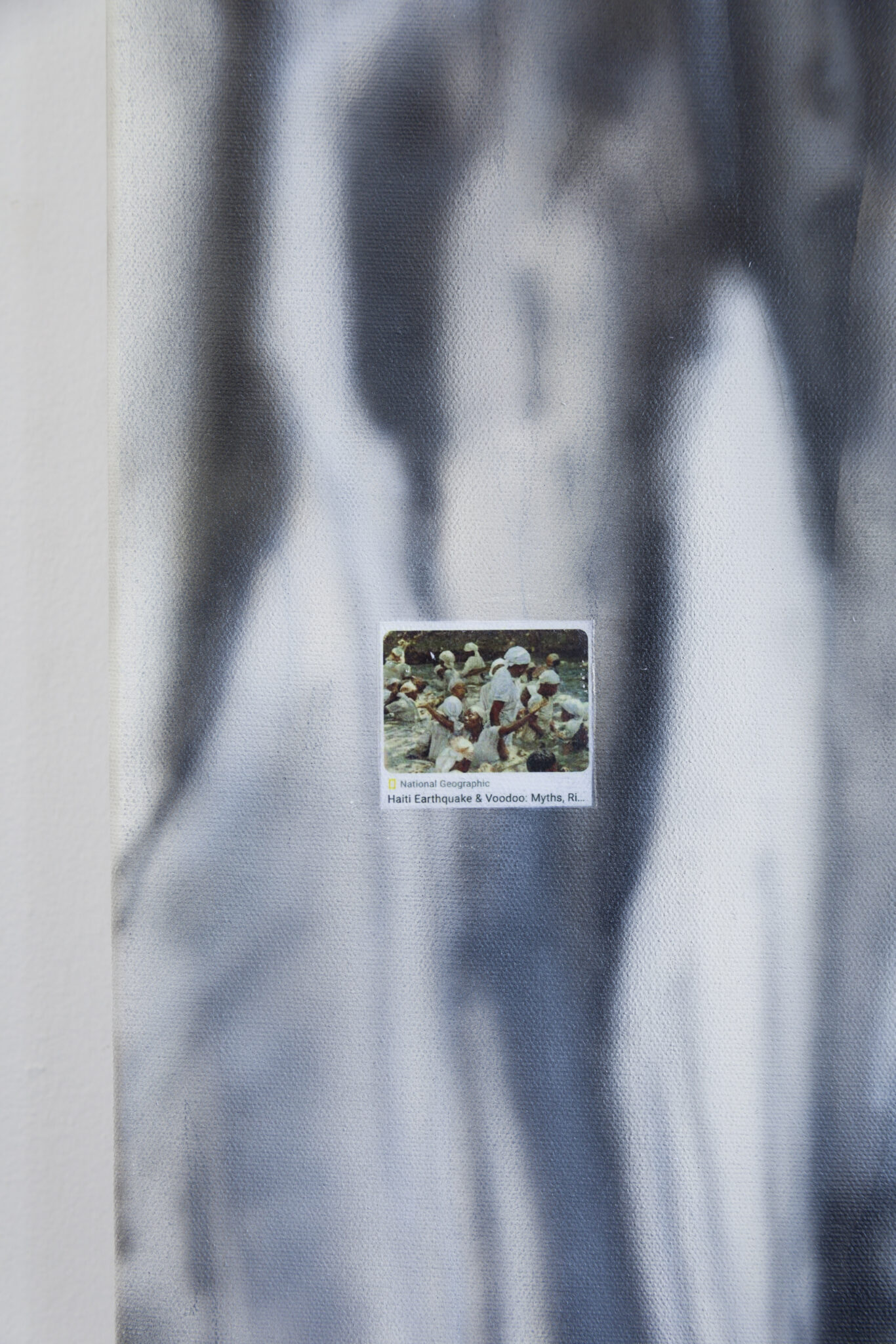
It’s a cold evening when I meet Caroline Douville in her studio in the basement of Project Casa. She greets me with a warm smile and a glass of white wine. In the middle of the space is a table covered with papers, photographs, and all her materials. In the corner, the paintings for her upcoming exhibition were leaning against the wall. Douville showed me around her studio explaining the airbrush techniques she uses for most of her works. “I tape all the surfaces where the pigments should not penetrate and build the images layer by layer,” she tells me.
The wine was beginning to warm us up when she brought up zombies. “Did you know zombies are originally from Haiti?” she said excitedly. Douville began opening up about her Haitian background and her inspirations, explaining that most of her research regarding voodoo, zombification, mysticism, and magic in Haitian communities pulls from national archives and academic investigations done by anthropologists and historians. American author Zora Neale Hurston’s book Tell My Horse is particularly influential in her research with first-hand experience of zombification in Haiti. Further, Douville elaborated on the significance of the Internet and mass media as research tools and influential platforms for Haitian diaspora artists to access knowledge and information about their origins, ultimately facilitating a connection to their culture. “As diaspora artists, much of what we know about our country of origin is through the internet and media. It gives us the imagination or perception of the land,” she explained.
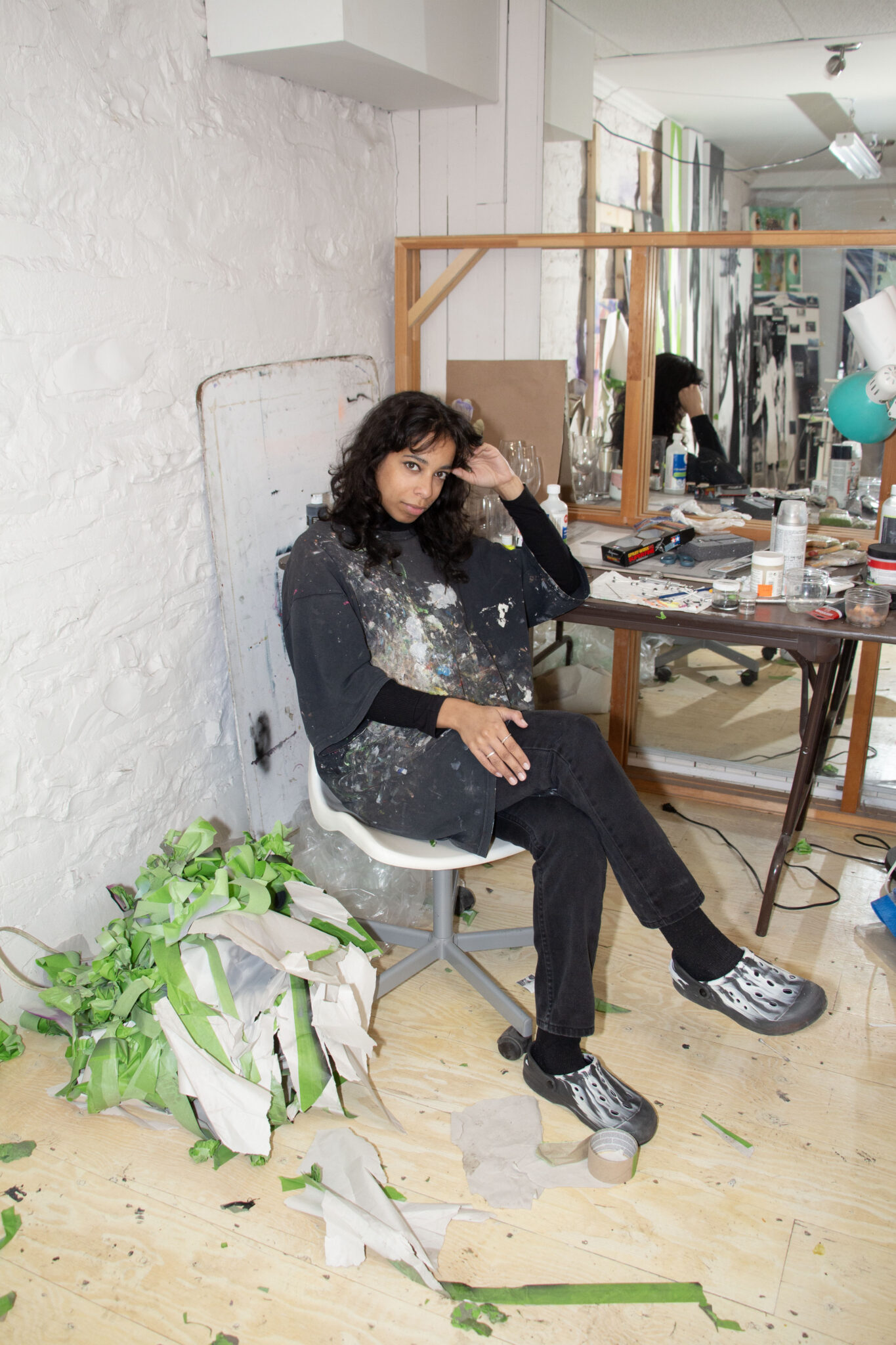
As Douville was looking through some of the articles that her most recent works refer to, we discussed the functionality of zombies for the Haitian communities at the time. As it appears, zombification, as this altered state of consciousness, worked as a poison to temporarily paralyse people with the power of the sorcerer. Consequently, it served to protect and hide the people of the community from slavery and violence caused by colonisation and oppression.
Douville took a deep dive into the ideas and inspirations behind her current works, which were previously on display at Espace Maurice as part of the group exhibition Hypnos. She began to walk me through the narrative, or rather her playful examination of Haitian history within the frames of her works. One of her tall and narrow paintings: “Ghostly Archives: Félicia,” is a portrait of Felicia Félix Mentor- a zombified woman who was photographed by Hurston in 1937- which Douville elongated with its colours inverted. Felicia’s presence frequently reappears in Douville’s paintings; “I rework the same images that are forgotten to make them part of my everyday life,” she explained. The painting conveys the feeling that distant memories encapsulate- vague, distorted, modified and blurry. Douville transforms these same photos to protect what is left of a memory of resilience. These images call attention to forgotten Haitian rituals once prohibited by the French oppressors and the colonial perception of communal rituals. “Ghostly Archives: Seau D’eau,” a 70 x 16inch depiction of a scene from a ritual ceremony, is dynamic, expressive and confrontational.
“The next step for both of these canvases is to include the original reference photo “of the event on the finished work,” she explained.
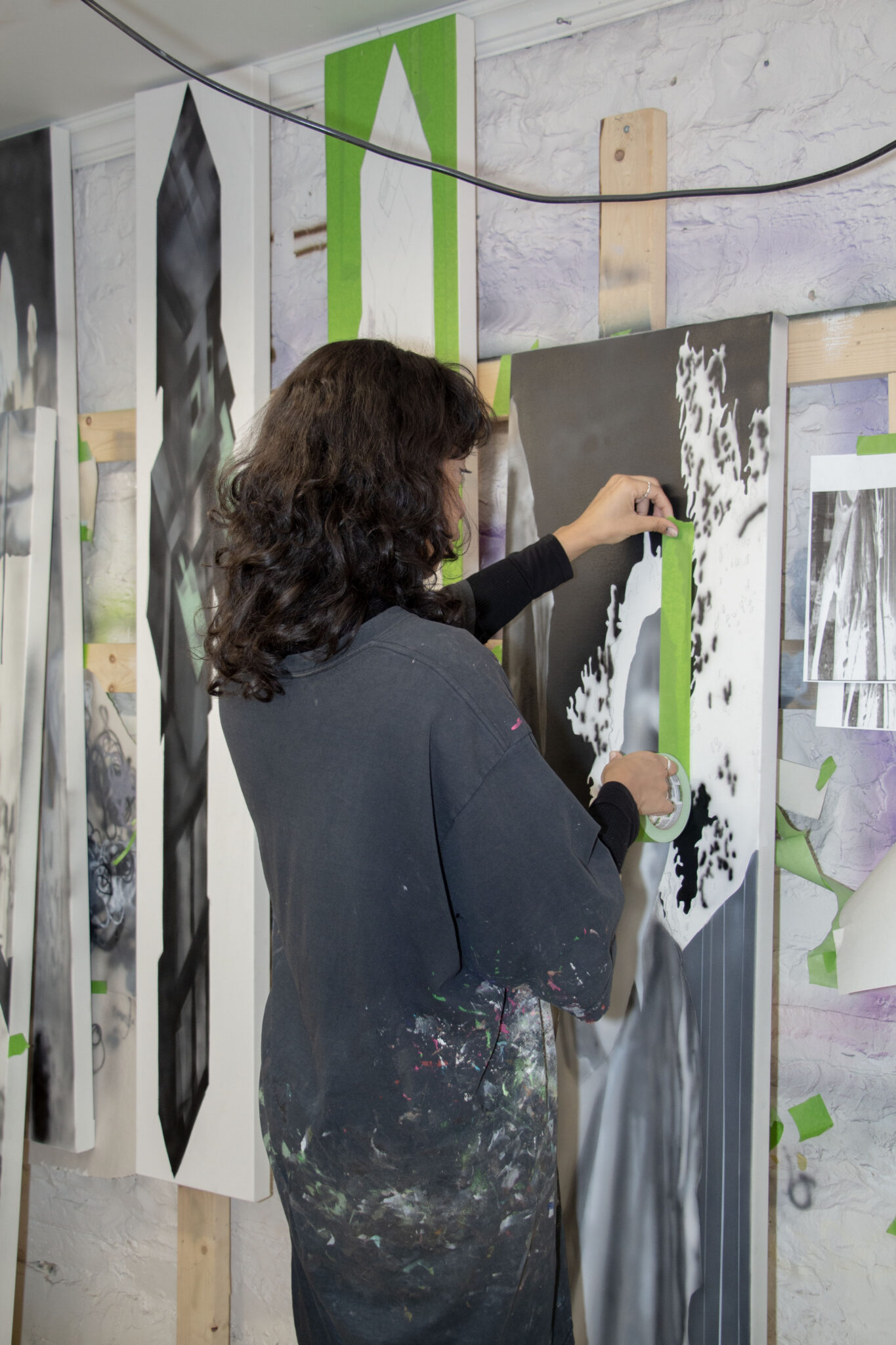
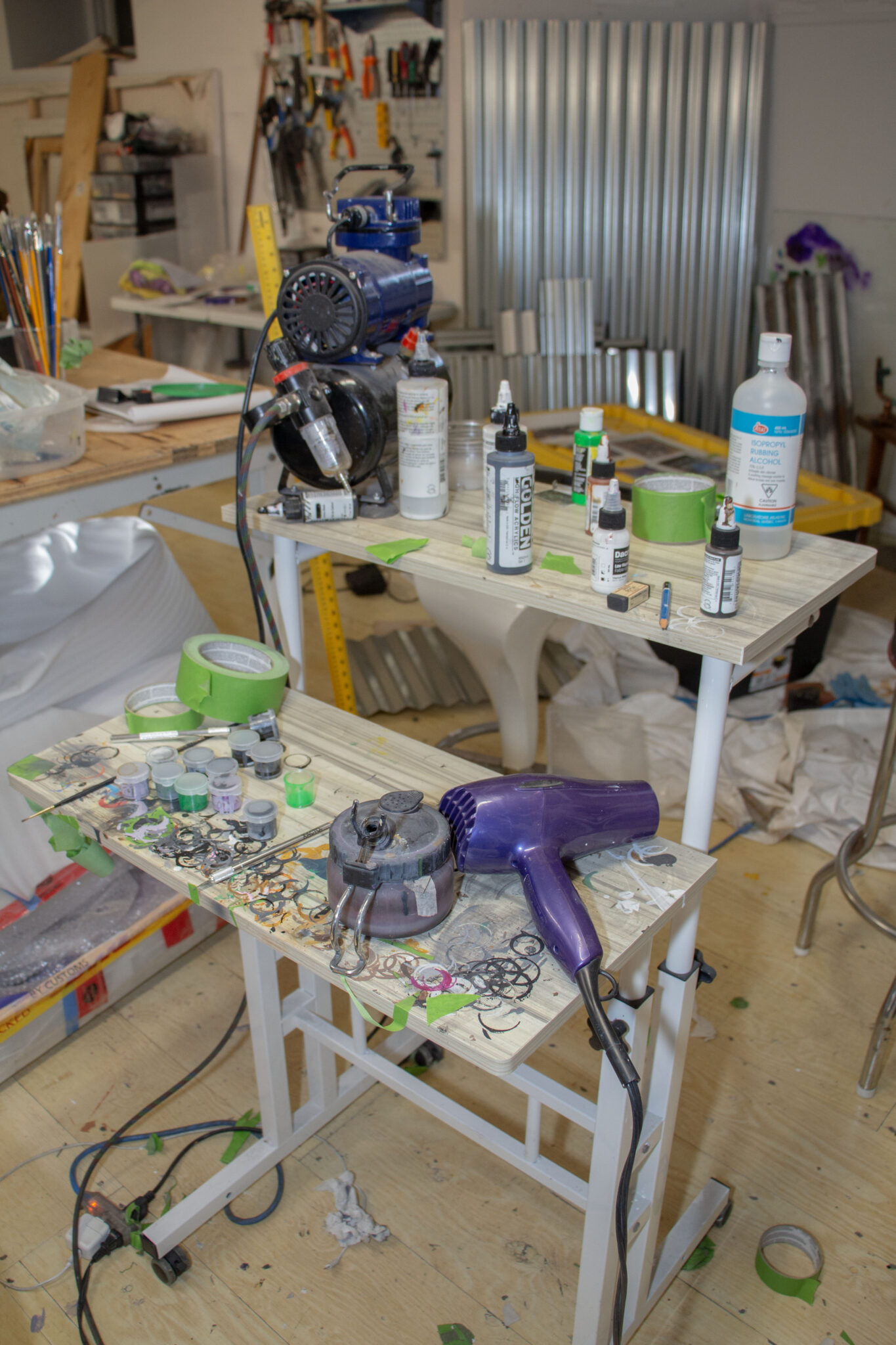
In “Ghostly Archives: Zombie I and II,” Douville evokes completely different aesthetics and styles of work. In these two paintings, she reconnects to her childhood memories of playing Minecraft and the zombies present in the game, memories from a time when she was unaware of the role of her ancestors’ culture in the popularisation of zombies. Reflecting on zombies prior to “White Zombie” – the first zombie movie released in 1932 – underscores the pervasive commercialisation and exploitation of oppressed cultures in modern pop culture. Depictions of commercialised Western zombies reflect on the appropriation of misrepresented communal rituals, which have endured despite the profound changes history imposed on them.
Written by Shaghayegh Naderolasli

